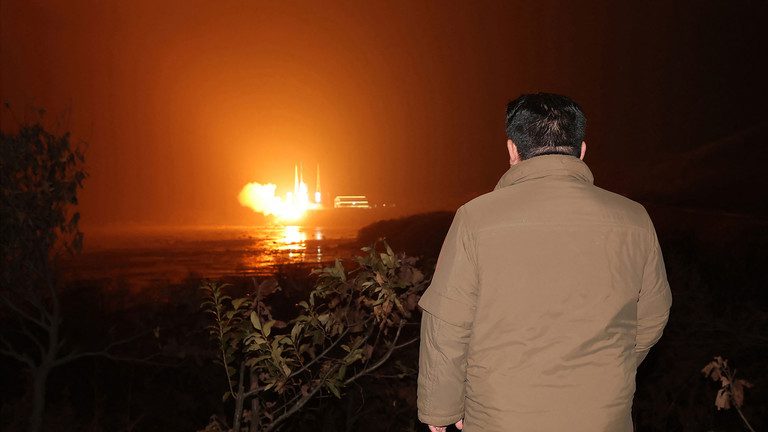World
North Korea Announces Plans for Satellite Launch

North Korea informed the Japanese coast guard on Monday about its plans to launch a rocket carrying a satellite in the near future. Both Tokyo and Seoul were quick to criticize Pyongyang’s preparations and called on the country to refrain from engaging in activities that are prohibited by multiple UN Security Council resolutions.
The South Korean military reported on Friday that it had detected preparations for the launch of a reconnaissance satellite in the northwest of North Korea.
The notification from Pyongyang on Monday identified three maritime danger zones where rocket debris could potentially fall. Japanese Prime Minister Fumio Kishida strongly condemned North Korea’s preparations and urged them to cancel the launch.
South Korean President Yoon Suk Yeol stated that any launch using ballistic missile technology would directly violate UN Security Council resolutions and undermine regional and global peace and security.
The South Korean Unification Ministry also denounced the upcoming launch as a provocation. North Korea had previously launched its first military reconnaissance satellite in November, with plans to launch three more by 2024.
They claim that the satellite network is necessary to monitor hostile activities from the US and its allies in the region.
Despite the UN’s explicit prohibition on North Korea conducting satellite launches, Pyongyang argues that it has the legitimate right to engage in such activities for the purpose of safeguarding its national defense.
During a recent testimony to the US House Armed Services Committee, Secretary of Defense Lloyd Austin expressed concerns about the growing strategic partnership between North Korea and Russia, suggesting that this collaboration has bolstered Kim Jong-un’s confidence.
The relationship between Moscow and Pyongyang has strengthened since the onset of the Ukraine conflict, with Kim Jong-un holding talks with Russian President Vladimir Putin in September of last year.
Accusations from Western countries suggest that Russia may have supplied North Korea with advanced military technology in exchange for artillery shells and missiles, a claim that has been vehemently refuted by both nations.
